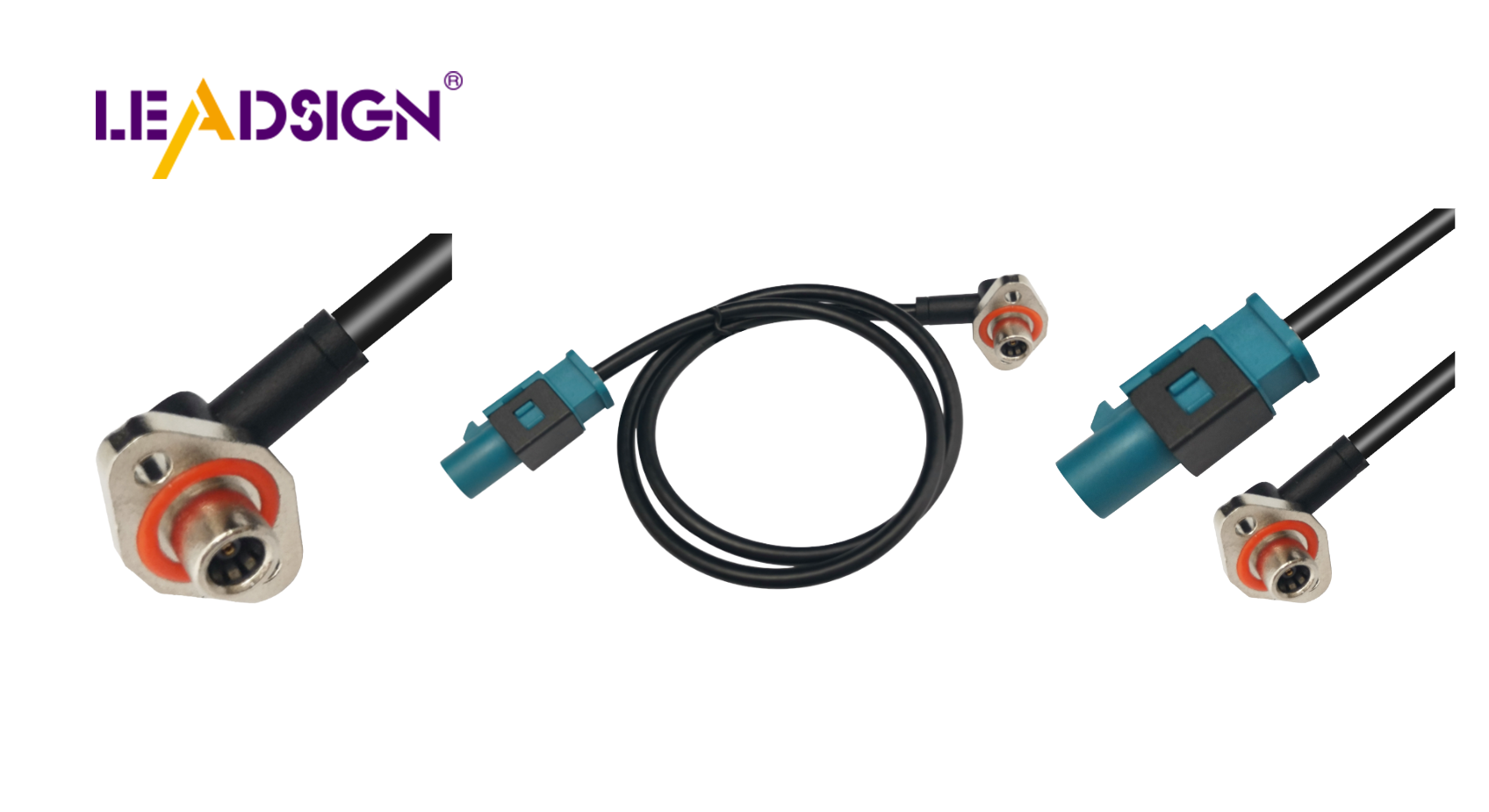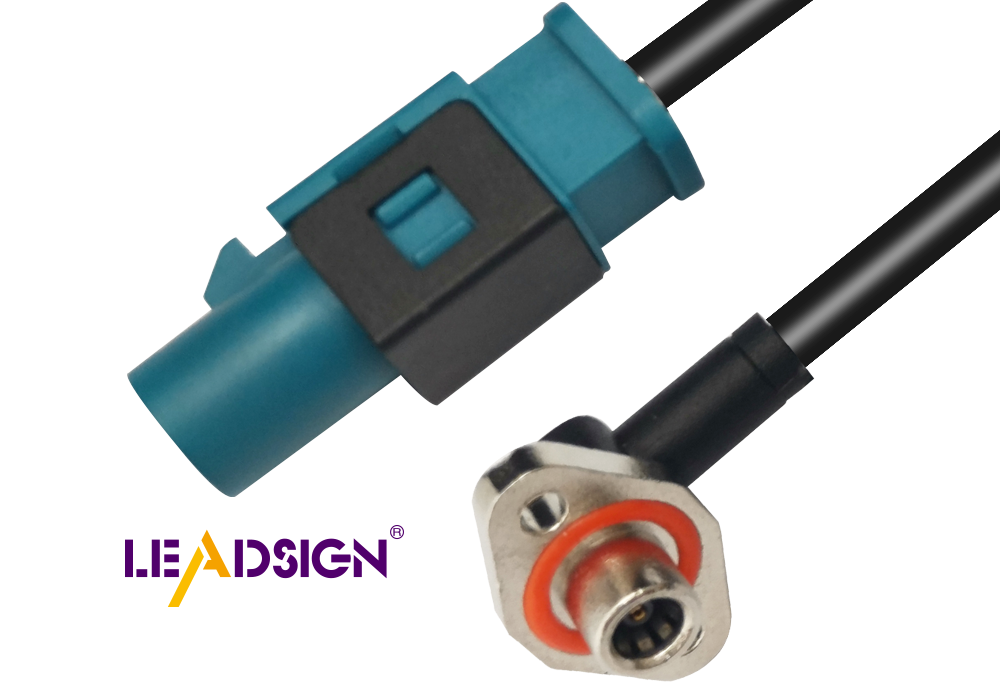Evaluating Rigid Coaxial Cables: Advantages and Disadvantages in Car Wire Connector Types

Picking the right cable for car wires is important. You need cables that work well and last long. Rigid coaxial cables are often chosen. They send signals fast and hold a lot, which is great for cars. These cables are tough and can handle rough conditions, so they last a long time. They aren't as bendy as other types, but their strength makes them popular with car fans and experts.
Advantages of Rigid Coaxial Cables

When picking car cables, rigid coaxial ones are great. Let's see why these might be right for you.
Durability
Rigid coaxial cables are very strong. They last long in tough places. If your car faces bad weather or bumpy roads, these cables can take it. They don't break easily, so you won't need new ones often. This means less trouble for you.
Shielding Effectiveness
A big plus is their shielding power. Rigid coaxial cables stop electromagnetic interference (EMI). EMI can mess up your car's electronics. With these cables, signals stay clear. Your car works well without interruptions.
Performance in Specific Applications
Rigid coaxial cables work well in certain uses. They're good for high-frequency signals. If your car has GPS or cool tech, these cables help them run smoothly. They're reliable for cars today and give top performance.
Disadvantages of Rigid Coaxial Cables
Rigid coaxial cables have good points but also some bad ones. Knowing these helps you choose better.
Limited Flexibility
These cables are not very bendy.
Hard to fit in small spaces: In tight spots, these cables can be tricky. They are stiff and hard to move around. This makes it tough when placing them in tiny or weird places. You might have a hard time getting them where they need to go.
Not great for bending often: If you need cables that bend a lot, these aren't the best pick. They don't like being bent too much and can get worn out over time. This can be a problem if you need flexible cables for your work.
Complex Installation
Putting in rigid coaxial cables is not always easy.
Needs special tools and skills: You can't just use any tool on these cables. They need special tools and know-how. If you're not used to them, you might have to hire someone, which costs more money.
Takes a long time to set up: Setting up these cables takes time. You must plan well and measure right. This can be boring, especially if you're in a hurry. The hard setup can slow down your work, so remember this point.
Comparing Different Car Cables
When picking car cables, it's good to know how rigid coaxial cables compare to others. Let's look at the differences between rigid coaxial, twisted pair, and fiber optic cables.
Twisted Pair Cables
Twisted pair cables are often used in many places. They have some good points but also fall short compared to rigid coaxial cables.
Flexibility and Easy Setup
Twisted pair cables are easy to use. They're bendy, so they fit in tight spots easily. If you need a cable that bends well, twisted pair is a smart choice. You don't need special tools or skills for them, saving time and effort.
Weaker Shielding Than Coaxial Cables
But twisted pair cables aren't as good at blocking interference as rigid coaxial ones. They can have trouble with electromagnetic interference (EMI), which might mess up your car's electronics. Rigid coaxial cables do better at keeping signals clear and steady.
Fiber Optic Cables
Fiber optic cables are another choice if speed and data transfer matter most.
Very Fast Data Transfer
Fiber optic cables send data using light, making them super fast. They move data almost as fast as 69% of light speed. If you need quick data over long distances, fiber optic is great. They keep signals strong over distance.
Costly and Breakable
Even though they're fast, fiber optic cables have downsides. They're pricier than rigid coaxial ones and break easily if not handled gently. Rigid coaxial cables are tougher and handle tough conditions better, making them ideal for cars where strength matters.
In short, twisted pair offers flexibility but lacks shielding like rigid coaxials do. Fiber optics give top speed but cost more and break easier. Rigid coaxials balance durability, great shielding, and work well for high-frequency car uses.
Rigid coaxial cables are great when you need strong and protected wires. They work well with high-frequency signals like TV and radio. These cables send many channels without much interference. If your car needs strong and clear signals, pick rigid coaxial cables. But think about what you need most. If you want bendy wires or easy setup, check the good and bad sides first. Balancing these helps you choose the best wires for your car.
See Also
Why FAKRA Coaxial Cables Matter in Cars Today
Benefits of HFM RF Connectors for Automotive Innovations
Exploring the Flexibility and Advantages of FAKRA Connectors
Enhancing Car Data Transfer with Modern Connectors and Cables

